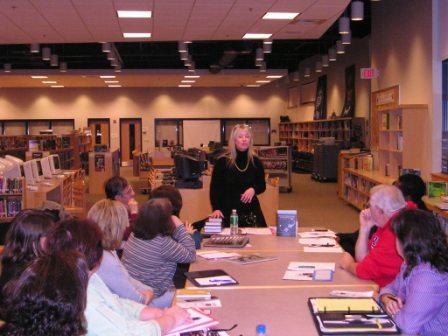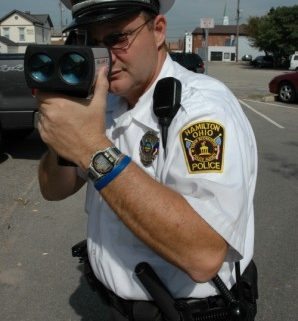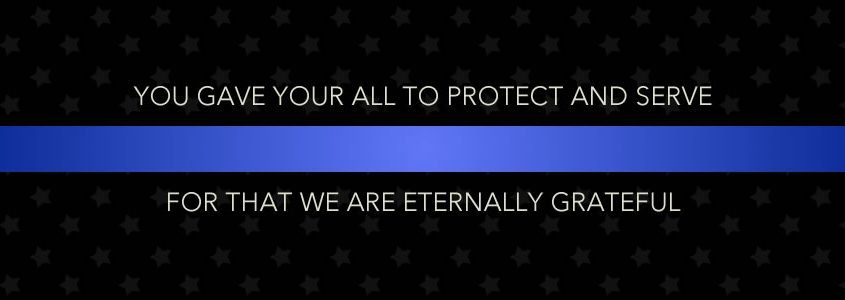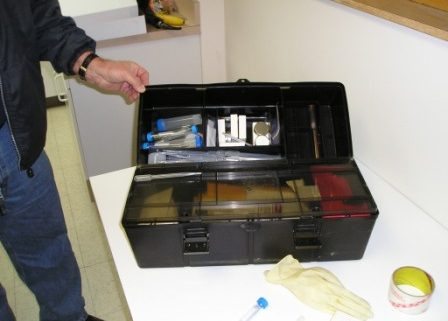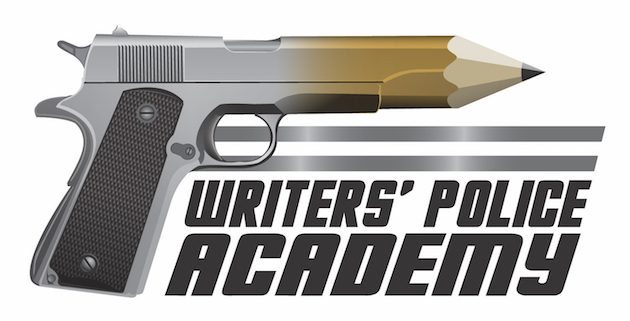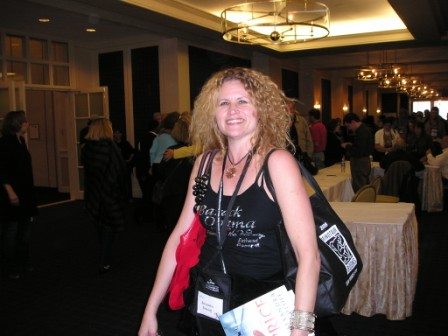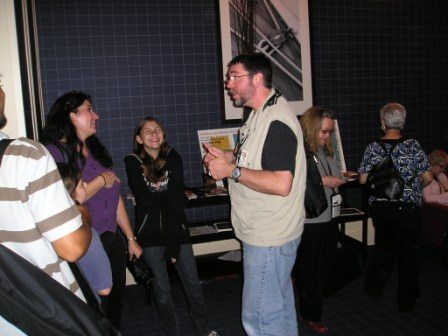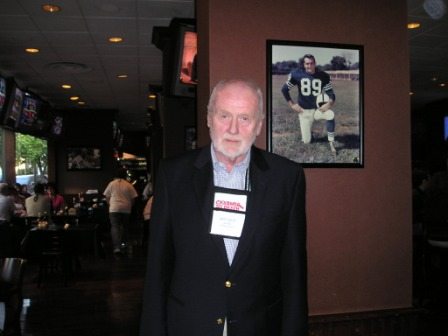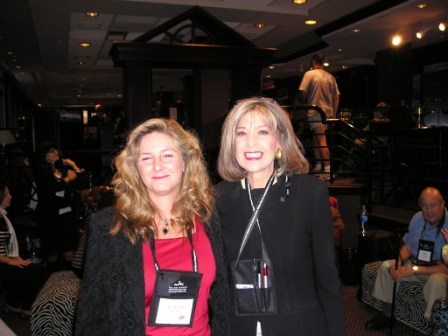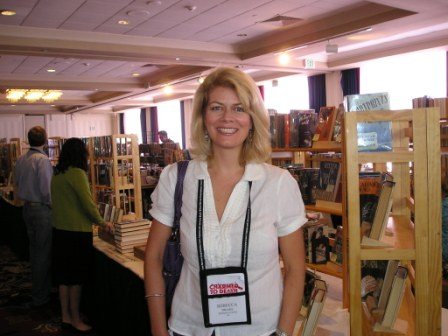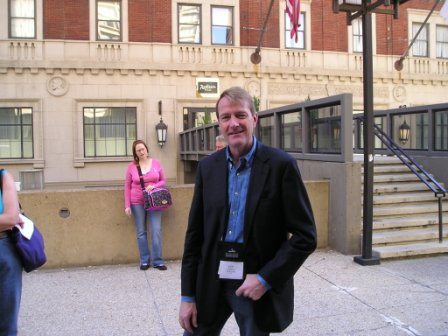The workshops are set, the instructors are ready, and registration is now open for the 2009 Mad Anthony Writers Conference and Writers Police Academy. A must for mystery writers! Sign up early because space is limited. For details please visit:
www.madanthonycbf.org/
Keynote Speakers
Lee Lofland, author and former police detective

Roger D. Launius, Ph.D., Chief Historian for NASA, National Air and Space Museum, Smithsonian Institution

Special Guests
Verna Dreisbach, author and literary agent with Dreisbach Literary Management

April Eberhardt, literary agent with Reese Halsey North Literary Agenc

Jane Friedman, F& W Publications (Writers Digest; Writers Market)

Benjamin LeRoy, Publisher Bleak House Books

Presenters
Boldman, Craig
Boyd, Amanda
Brohaugh, William
Krisher, Trudy
Paris, Anne (PhD)
Pinard, Nancy
Singer, Nathan
Police Academy Presenters and Instructors:
· Dr. Richard Burkhardt, Butler County Coroner

· Sgt. Mike Black (law enforcement, author)

· Crime Prevention Specialist Dave Crawford (law enforcement)

· Verna Dreisbach (law enforcement- former California Highway Patrol officer and deputy sheriff, author, literary agent)

· Lee Lofland (former deputy sheriff, police detective, police academy instructor and instructor trainer, author)

· Rick McMahan (ATF Special Agent, author)

· Sheila Stephens (former ATF Special Agent and Alabama State Police officer, author)

· Lt. Dave Swords ret. (Police investigator, author)
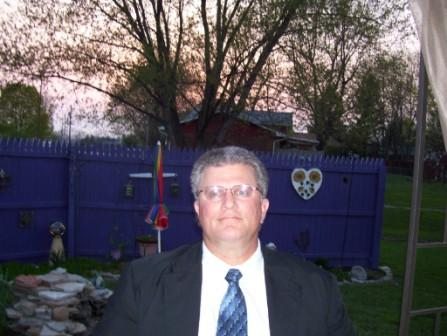
FRIDAY AFTERNOON- POLICE ACADEMY

Photo courtesy of the Los Angeles Times
Writers Police Academy Friday (Tours)- 10:00 a.m. to 4:00 p.m. Presentations by Lee Lofland, author, Dr. Richard Burkhardt, Butler County Coroner, and others plus tours of the Hamilton Police Department and Butler County Morgue and police K9 demonstrations and workshop. An additional fee of $45 is required for this portion of the Writers Police Academy/Writers Conference.
FRIDAY EVENING
Keynote Speaker (for all Conference attendees)- Dr. Launius National Air and Space Museum, Smithsonian Institute
Panel: How to Write Your Book- editors from F & W Media (publishers of Writers Digest Books and more)
Night Owl Session: Murder, Mayhem, and the Macabre: A Story of Hamilton’s Bizarre Murders–a candlelight visit with the infamous killers and their unfortunate victims who made national headlines. This night owl presentation offered by Lee Lofland is not for the faint of heart.
SATURDAY
Fiction Strand (* for scheduling purposes Writing Sci-Fi and Fantasy is listed under Nonfiction)
Comic Book Writing– Craig Boldman.
Plotting the Mainstream/Literary Novel – Nancy Pinard This class will distinguish the literary/mainstream novel and establish how it is different from the novels of the romance, mystery, sci-fi, and western genres. Together, the class will generate a novel situation/conflict and demonstrate ways a mainstream/literary novelist thinks about the characters’ dilemmas to develop the novel’s story line.
Characters– Nathan Singer We will discuss the process of building full-blooded, engaging, three-dimensional characters, with particular attention to how they speak and interact. We will also discuss introducing dark, troubling and/or controversial themes and concepts via these flawed and compelling characters.
Jumping the Fences: What a Writer of Children’s and Young Adult Literature Needs to Do to Leap the Hurdles – Trudy Krisher The author will offer hints for success based on her own experiences as a writer for children and young adults.
Writing and Illustrating Children’s Books – Andrea Cheng I will show the relationship between my background and my writing. Listeners will see how experiences in Shanghai, Budapest, and Cincinnati come together in picture books and novels for children and young adults. Participants will find the “seeds” of their own stories.
Nonfiction Strand
Craft a High-Powered and Salable Nonfiction Book Concept-Jane Friedman Find out the difference between a nonfiction book concept that gets an immediate, enthusiastic response from agents/editors-and one that gets no response. Learn how to craft a selling-handle with sizzle, and most importantly, learn the philosophy behind the one golden rule of nonfiction: Don’t sell what you write-sell what readers will buy!
Nonfiction Writing– Dr. Launius As a writer you have been advised to “write what you know.” Wouldn’t your job be the first place to start? Find out how Dr. Launius used the knowledge he acquired for and through his job to publish an impressive list of articles and books.
Researching Your Book: Streamlining Your Search– Diane Bengson Do you have a article, book, or fiction idea that requires a little, or maybe a lot, of research? This workshop will cover approaches to research, where to find information, how to organize the information while you are gathering it, what to do when you you’ve hit a dead end, time-saving tips, and when to stop researching and start writing.
*Writing Science Fiction and Fantasy – BT Robertson: Come bathe in the wondrous worlds, characters, plots, and magic offered by the Science Fiction and Fantasy genres. B.T. Robertson – author of the Chronicles of the Planeswalkers novel series – offers tips and hands-on exercises focused on the creative development of these essential components.
Five Habits of Highly Effective Magazine Writers (that magazine editors love)- Amanda Boyd Looking for the magic words that will make magazine editors love your pitches? Trying to break the secret code to getting more assignments? It doesn’t take supernatural powers, but it does take these key steps. Follow them and you’re well on your way to winning over magazine editors.
Writing As a Career Strand
Write Tight – Bill Brohaugh A mixture of instruction and exercise in writing what you mean with precision and power. Should I write this down in the first place? Should I “pour down” or “pour up?” Are four examples better than three? Should I spell things out or evoke images? In reviewing the book this workshop is based on, Dean Koontz said, “These days, most creative-writing courses teach self-indulgence. Write Tight counsels discipline. It is worth more than a university education. Its advice is gold.”
Unleashing Your Creativity– Anne Paris, PhD. Dr. Paris will show a video then facilitate a discussion with audience members, including a question and answer period. Her presentation will help you understand your blocks and procrastinations, and will offer unique ideas about how to move through the entire creative process.
Marketing: The Times They Are A-Changin’– Jane Friedman Major book and magazine publishers are recreating themselves, transitioning from businesses based on paper to businesses based on content, community, and experiences. Digitization, social networks, and customization-these are the buzzwords in the industry today. How do these trends affect writers? What do you need to know, or do differently, to advance (or start!) your career?.
Your Website I basics– Ken Macke An overview and explanation of typical web site designs and features used by popular as well as up-and-coming authors.
Your Website II advanced: Ken Macke This session will build on the concepts learned in the Beginner’s presentation. Gathering the tools necessary to build and grow your web site.
Police Academy
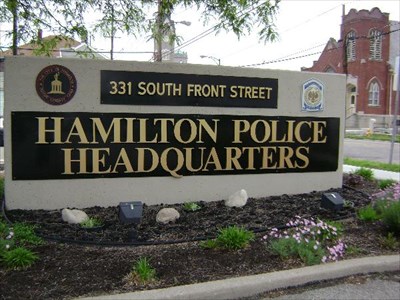
All sessions taught by active or retired law enforcement personnel. Titles describe the content of the sessions. Note – Some workshops will be hands-on sessions. Be prepared to dust for prints and handcuff some bad guys!
Writing Realistic Fight Scenes – Rick McMahan & Staff
Prison & Jail, Slang & Gangs – Verna Dreisbach
Police Tools & Equipment -Dave Crawford & McMahan
SWAT I – Mike Black
Nonlethal Weapons – Sheila Stephens
Arrest Techniques & Handcuffing – Rick McMahan & Staff
High Risk Traffic Stops – Crawford & Staff
Interview & Interrogation – David Swords
Writing Compelling Villains – Lee Lofland
Technology & Crime – Sheila Stephens
Primer of Handguns – Rick McMahan
Hostage Negotiations – Mike Black
Fingerprinting – Crawford, McMahan, & Swords
Kenesics: Human Lie Detecting – Lee Lofland
* I’m on my way to Bouchercon and I hope to see some of you in Baltimore. I’ll check in later today. Please stay tuned for Bouchercon updates and photos.
